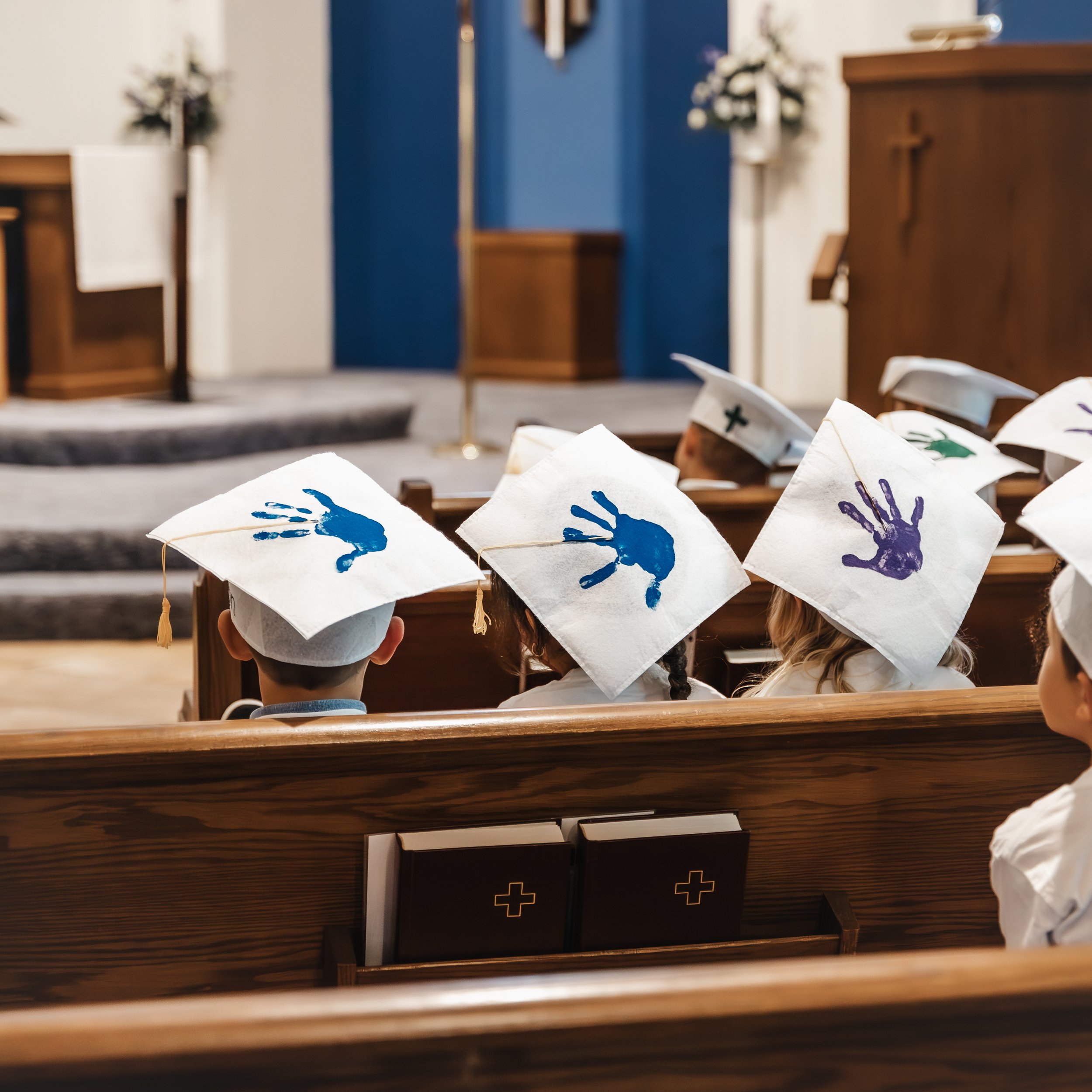
VPK Program
Our VPK teachers provide a wide variety of activities such as sensory materials, art projects, manipulatives, books, and writing materials to promote academic learning. These activities promote standard areas of learning such as letter, shape and color recognition, story telling, pre-reading skills, and early math skills. This time also offers children the opportunity to develop socially and emotionally through interaction with other children.
Circle time is offers children the opportunity to develop further concepts in the current topic of study. Circle time also provides a special opportunity for children to learn about Jesus. Our teachers use this time for reading, singing, questioning, and skits. This time is also used to review classroom rules and expectations, especially at the beginning of the school year.
Our teachers provide for their student’s physical development through nutritious snacks, gross motor activities, and rest time. Children must bring their own lunch, but daily snacks are provided. During meal times, children learn table manners and other social interaction skills. During play time, children learn to use their quickly developing bodies through free play and guided activities on the playground. Children who stay in wrap-around care are provided with a cot for rest time, which is much needed after such a busy morning!
The VPK program is a free prekindergarten program for 4 and 5-year-olds who reside in Florida. Participating children must be 4 years of age on or before September 1. Parents can enroll their child in the state’s free, voluntary prekindergarten (VPK) education program that year or wait until the following year when their child is 5.
Voluntary Prekindergarten or VPK gives children a jump start by preparing them for school and enhancing their pre-reading, pre-math, language, and social skills. By developing the skills children need to become strong readers and students at an early age, children are more likely to be successful in school. VPK classrooms offer high-quality programs that include high literacy standards, developmentally appropriate curricula, manageable class sizes, and qualified teachers.


